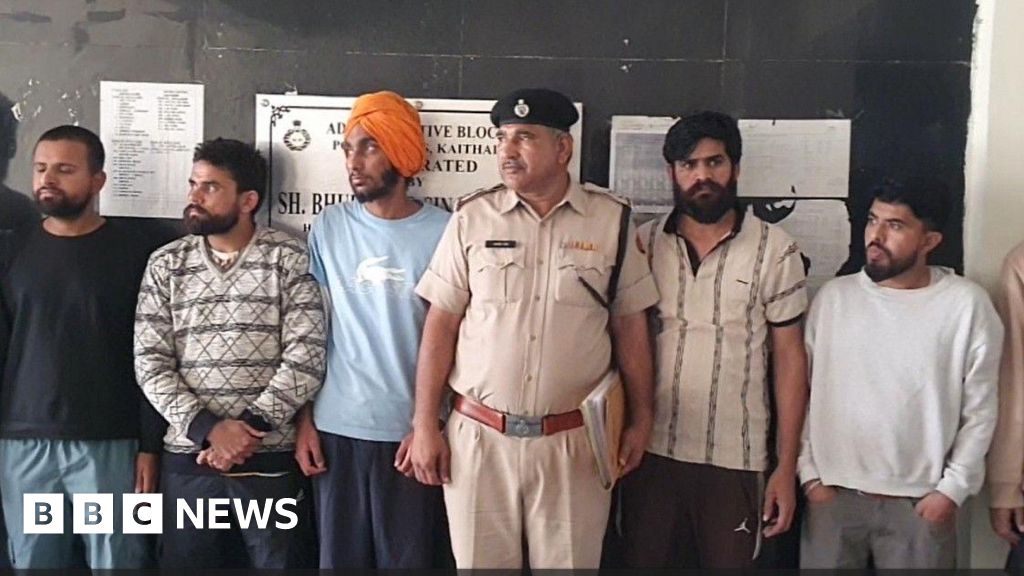A recent wave of deportations from the United States has brought to light the harrowing experiences of illegal Indian migrant workers who sought better lives abroad but instead faced humiliation, financial ruin, and shattered dreams. At least 54 men, all originally from the northern Indian state of Haryana, were deported to Delhi on a recent Sunday after having entered the US via the notorious "donkey route"—a perilous path frequently exploited by human traffickers to facilitate illegal border crossings. These deportations come amid a broader crackdown on undocumented immigrants under the administration of former US President Donald Trump, which has seen over 2,400 Indians returned to their homeland just this year alone.
The men, aged between 25 and 40, shared their stories with BBC Punjabi upon their return, painting a grim picture of the sacrifices they made and the challenges they now face. Many of these individuals had undertaken arduous, multi-border journeys in hopes of finding work and financial stability in the US or Europe. The "donkey route," also known as the "dunki route," has become a well-known but dangerous pathway for migrants from South Asia, forcing them to cross multiple countries and terrains, often relying on smugglers who charge exorbitant fees.
For many of these men, the decision to embark on such journeys was driven by economic necessity. They sold land, borrowed heavily, and spent their life savings to finance these trips. Harjinder Singh, a farmer from Haryana who spent a staggering 3.5 million rupees (approximately £29,653 or $39,624) to reach the US four years ago, shared his anguish. He had taken up work as a cook in America, hoping to support his children back home, but his dreams crumbled with his deportation. "My hopes have been dashed, it is a pity that I could not do anything," Singh lamented, also describing the humiliation he endured during the deportation process. Now, with all his savings gone, he worries about the future of his family.
Similarly, Naresh Kumar, another deportee, recounted how he sold land and paid 5.7 million rupees to agents who promised to help him reach the US. Kumar initially traveled to Brazil in January 2024 before making his way to the United States. Throughout his journey, his relatives sent him money to support his passage. However, he was arrested for illegal entry upon arrival and spent 14 months in jail before being sent back to India. His story exemplifies the risks and uncertainties migrants face, often ending up in prison or deportation despite their sacrifices.
BBC Punjabi also spoke with Rajat Pal from Karnal district, who described his route to the US via Panama as "very dangerous." Leaving home in May 2024, he only managed to reach his destination several months later in December. Although details of his exact travel methods are unclear, it is known that migrants on such routes often endure multiple modes of transport—including buses, boats, and treacherous jungle treks—while being smuggled from one point to another. The journey itself is fraught with danger, exhaustion, and exploitation.
Local authorities in Haryana have noted that none of the deported men have yet filed formal complaints against the agents who arranged their journeys. A senior police official from Kaithal district indicated that while no complaints have been received so far, action would be taken once any grievances are formally reported. This highlights a broader reluctance or inability among migrants to seek legal recourse against traffickers and agents, possibly due to fear, stigma, or lack of awareness.
The Indian government has acknowledged the ongoing issue of illegal migration and human trafficking through such routes. Efforts to raise awareness about safe and legal migration have been undertaken, with Prime Minister Narendra Modi publicly addressing the problem of young and vulnerable Indians being lured abroad by false promises and unrealistic dreams. Despite these efforts, the scale of illegal migration remains significant.
According to India’s Ministry of External Affairs, 2,417 Indian nationals were deported from the US between January and September 2025 alone, underscoring the magnitude of the issue. The deportations have sometimes sparked controversy and anger within Indian communities abroad. For example, earlier this year, the deportation of 73-year-old Harjit Kaur, who had lived in the US for three decades, drew strong reactions from the Sikh community in the US. Additionally, in February, over 100 Indian citizens were sent back on a

